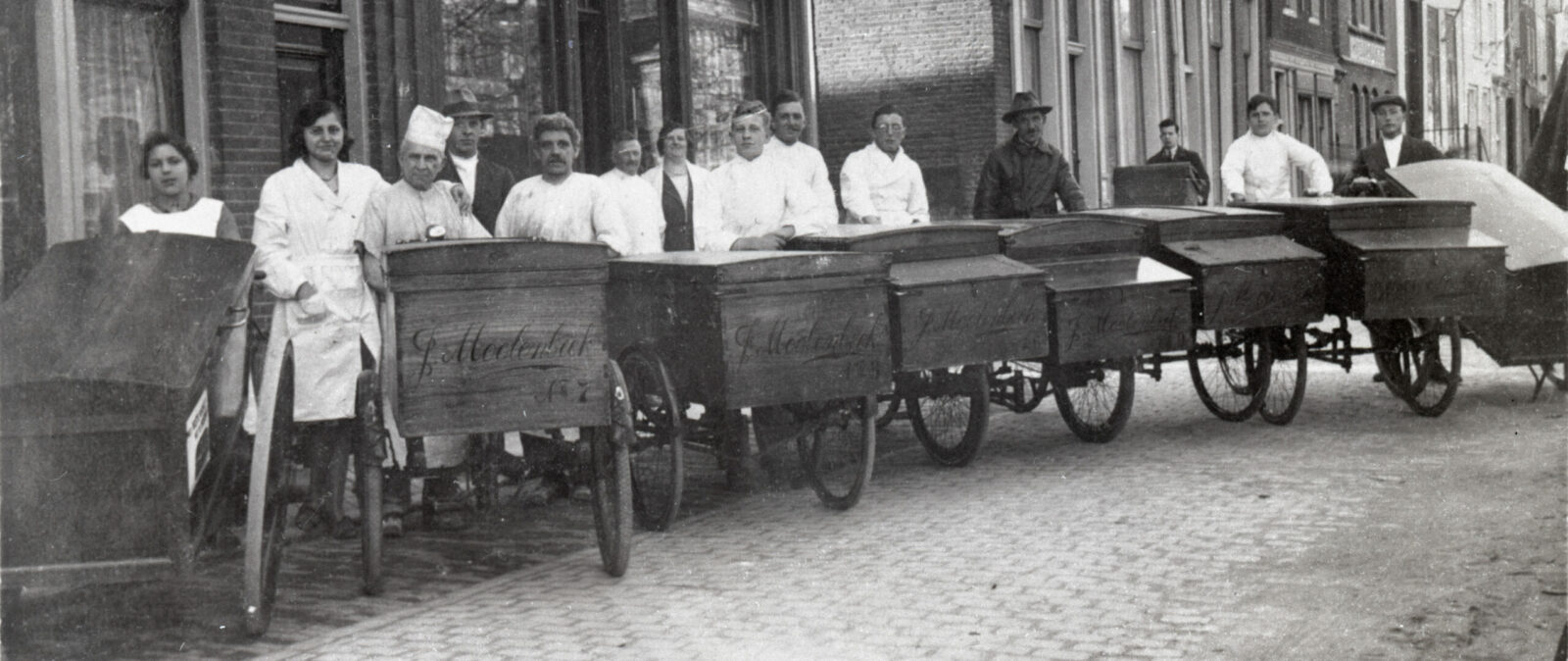The Posthumus Research Master Programme ‘Global Economic and Social History’
The N.W. Posthumus Institute organises the Posthumus Research Master Programme. This programme allows Research Master students to gain knowledge of the Posthumus specialisation and its specialists, by providing courses that they can follow as an elective in their home university programme.
The Posthumus Research Master Programme ‘Global Economic and Social History’ consists of the following inter-university courses:
- Debates in Global Economic and Social History (November-February, International Institute of Social History, Amsterdam; deadline applications 15 October)
- Data Management for Historians (February-April, online; final session in person at International Institute of Social History, Amsterdam; deadline applications 10 January)
- Quantitative Methods for Historians and Social Scientists (April-June, Utrecht University; deadline applications 15 March)
- Summer School Crises and History (1 week (Mon-Fri), early July, Utrecht University; deadline applications 1 June)
The courses are complementary to each other, but it is possible to follow them separately.
Registration: preferably via your home faculty
In the Netherlands, it is mandatory for every Research Master student to register with one of the National Research Schools. This registration takes places through your home faculty at the start of your Research Master.
We recommend to register with the N.W. Posthumus Institute via the Research Master Office of your home faculty, as this will offer you the following benefits:
- priority when registering for the courses
- free admission to the annual Posthumus Conference (including conference dinner)
- you will receive the monthly newsletter, packed with (academic) items from the world of social and economic history, PhD and other vacancies and interesting workshops and master classes
After the the Research Master Office of your home faculty has notified us about your registration, we will send you a link to our registration form to complete your registration with the N.W. Posthumus Institute.
Other ways to register
In case you did not register via your home faculty, you are of course also more than welcome to join our Posthumus courses, but the aforementioned benefit will not apply. For such applications, you can use our Application Form.
Research Themes
How did ordinary people live the big changes of the past? Why did some societies achieve much more economic growth than others? Why are some inequalities much more persistent than others? Who had access to power and how did certain groups manage to exclude others from power? What were the risks and uncertainties of existence, such as sickness and death, unemployment and disability, and environmental hazards, how did these risks change over time and how did people try to reduce such risks? What kind of beliefs and norms guided the ordinary people and how did mental structures change over the long term? These are just few of the questions that are tackled by social and economic historians. In looking for answers, scholars have increasingly stressed transnational links and connections. The rise of global history has stimulated comparisons and contrasts and has intensified scholarly exchange through numerous debates.
In the courses of the Posthumus Research Master Programme ‘Global Economic and Social History’ a thorough insight is offered into the economy and society in the pre-industrial and industrial periods, focusing on various aspects of social and economic change, such as economic growth, group formation, social mobility, migration, environmental hazards, business development and technological progress, often with the application models and theories from the social sciences to explain historical patterns and developments.
Embedding of the Posthumus Programme
The Posthumus Research Master Programme ‘Global Economic and Social History’ is offered as a specialisation within the existing Research Masters in the participating universities.
Experts from the fifteen Dutch and Flemish Posthumus universities and research institutions will participate in the courses. The programme offers ambitious students the opportunity to learn from their expertise and to profit from the existing network of cooperation in a successful research school. The course is open for Research Master students from all participating universities. In some cases other Master students with PhD plans are also eligible.
Objectives of the Posthumus programme
The Posthumus Research Master Programme ‘Global Economic and Social History’ aims to provide Research Master students with:
- thorough knowledge of concepts, notions, and perceptions of economic and social history
- up-to-date knowledge of the state of the art in global economic and social history
- insight in and ability to take part in the on-going historical debates
- experience with several of the most commonly used research methods and skills to conduct research in the field of global economic and social history
- ability to use varied primary sources to build historical case-studies and re-define theoretical approaches
- ability to report on research results in written and oral form at an academic level
- ability to formulate a research proposal for a PhD project.
Admission Requirements & Application Procedure
Full info on admission requirements & procedures can be found via the button link below.


